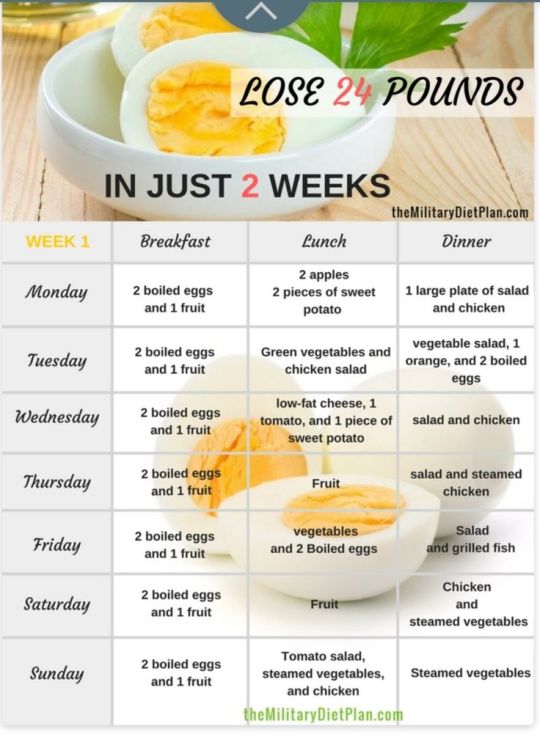#VitaminSupplements
Explore tagged Tumblr posts
Text
The Ultimate Guide to Effective Weight Loss
Weight loss is one of the most common goals people have when it comes to fitness. Everyone wants to look and feel their best, but losing weight can be a tough journey. Fortunately, there are some effective ways to drop those extra pounds and reach your desired weight: Eat a healthy diet: The first step to losing weight is to eat a nutritious diet. Cut back on processed foods and focus on eating fresh fruits, vegetables, lean protein, and healthy fats. Also, watch your portion sizes to avoid overeating. Exercise regularly: Regular exercise is vital for weight loss. Aim for at least 30 minutes of moderate aerobic exercise, like walking or cycling, per day. Strength training with weights or resistance bands can also help build muscle and burn fat. Stay hydrated: Drinking plenty of water is essential for weight loss. It can help flush out toxins and reduce cravings for unhealthy snacks. Get enough sleep: Lack of sleep can disrupt your hormones and make it harder to lose weight. Aim for seven to eight hours of quality sleep per night. Reduce stress: Chronic stress can lead to weight gain, so it's important to find ways to manage stress. Meditation, yoga, or deep breathing exercises can all help reduce stress levels. Remember, Burn Boost is a journey, and it may take some time to reach your goal. Be patient and stay committed to a healthy lifestyle. By following these tips, you can achieve effective and sustainable weight loss.

#SupplementReviews#HealthSupplements#DietarySupplements#VitaminSupplements#ProteinSupplements#WorkoutSupplements#WeightLossSupplements#EnergySupplements#NaturalSupplements#HerbalSupplements#SupplementBenefits#SupplementSideEffects
3 notes
·
View notes
Text
Vitamin A: Unlocking the Power of Essential Nutrition
Vitamin A is a vital nutrient that plays a crucial role in maintaining overall health and well-being. From supporting vision to bolstering the immune system, this powerful vitamin offers a wide array of benefits for the body. In this article, we explore the remarkable advantages of Vitamin A, shedding light on its ability to enhance vision, promote healthy skin, and boost immune function.
Facts about Vitamin A
Enhancing Vision:
Vitamin A is essential for maintaining good eyesight and optimal vision.
It plays a pivotal role in the formation of visual pigments, helping to transmit light signals to the brain, and supporting overall eye health.
Promoting Healthy Skin:
Vitamin A contributes to the growth and development of healthy skin cells.
It aids in maintaining the integrity of the skin, supporting a smooth and radiant complexion, and assisting in the repair of damaged skin tissues.
Boosting Immune Function:
Vitamin A plays a vital role in the proper functioning of the immune system.
It helps to strengthen the body's defenses against infections, viruses, and other harmful pathogens, supporting overall immune function and reducing the risk of illnesses.
To delve deeper into the incredible benefits of Vitamin A and discover how it can enhance your health and well-being, click the link below to read the full article.

#VitaminA#Nutrition#EyeHealth#VisionCare#SkinHealth#RadiantComplexion#ImmuneFunction#HealthBenefits#Wellness#NutrientPowerhouse#HealthyLiving#VitaminSupplements#HolisticHealth#ImmuneSupport
2 notes
·
View notes
Text

Vitamin store in Winnipeg
As winter hits Winnipeg and the cold and flu season is in full swing, it’s the perfect time to visit our vitamin store in Winnipeg. We offer a wide range of vitamins and supplements to help boost your immune system and keep you feeling your best during these chilly months. From Vitamin C to immune-boosting formulas, our store has everything you need to stay strong and healthy through the winter season.Visit us today and stock up on the essentials!
0 notes
Text
Vitamin Water Exposed: Is This ‘Healthy’ Drink Really Good for You or Just Sugary Hype?

Vitamin Water has surged in popularity as an alternative to sugary sodas and plain water, marketed as a healthy choice loaded with essential vitamins and minerals. With vibrant colors and enticing flavors, it promises not only hydration but a nutritional boost that appeals to those leading busy lifestyles or looking to make healthier choices. However, behind the enticing labels and marketing claims, questions arise: Is Vitamin Water actually good for you? This article dives into the ingredients, benefits, drawbacks, and considerations for drinking Vitamin Water, helping you make an informed decision about its place in your diet.
Table of Contents
What is Vitamin Water?
Types of Vitamin Water and Their Ingredients
Potential Health Benefits of Vitamin Water
Concerns and Risks of Drinking Vitamin Water
Vitamin Water vs. Plain Water
Who Should Consider Drinking Vitamin Water?
Are There Better Alternatives?
Conclusion
1. What is Vitamin Water?
Vitamin Water is a flavored water beverage infused with added vitamins and minerals. Initially developed by Glacéau in 2000 and later acquired by Coca-Cola, Vitamin Water has grown into a recognizable product, especially among people looking for more than plain water. These drinks are often fortified with vitamins like B-complex and vitamin C, which are marketed to promote energy, immunity, and overall health. Many consumers are drawn to it, believing it to be a healthier alternative to soda or sugary beverages.
But it’s essential to read between the lines. Unlike traditional health supplements or whole foods, the vitamins in Vitamin Water don’t come with the same comprehensive health benefits and often have added sugars that contribute to daily calorie intake.
2. Types of Vitamin Water and Their Ingredients
There are two main categories of Vitamin Water:
Vitamin Water Original: Contains added vitamins and minerals along with a significant amount of sugar.
Vitamin Water Zero: Contains added vitamins and minerals without added sugar, using artificial or natural sweeteners instead.
Common Ingredients Found in Vitamin Water
Vitamins: Typically includes vitamin C, B vitamins (B3, B5, B6, B12), and occasionally vitamin E.
Minerals: May include calcium, magnesium, or potassium, though these are often in minimal quantities.
Sweeteners: Vitamin Water Original contains cane sugar and/or crystalline fructose, contributing to its sugar content. Vitamin Water Zero uses artificial sweeteners like erythritol and stevia.
Natural Flavors: These vary by flavor but generally add taste without nutritional value.
Colorings and Preservatives: Often includes natural or artificial colorings for visual appeal.
While Vitamin Water may offer vitamins and minerals, the added sugar (or artificial sweeteners in Vitamin Water Zero) and flavorings bring potential health implications.
3. Potential Health Benefits of Vitamin Water
Vitamin Water does have some benefits, mainly due to the vitamins it provides. Here’s a breakdown of some of the key components and what they might do for the body:
Vitamin C
Vitamin C is a powerful antioxidant that can help protect cells from damage caused by free radicals. It's also essential for immune function, skin health, and iron absorption.
B Vitamins
The B-complex vitamins in Vitamin Water (such as B3, B5, B6, and B12) play crucial roles in energy production, brain function, and cellular metabolism. For individuals with specific vitamin deficiencies, Vitamin Water might provide a small, temporary boost.
Hydration with Flavor
For those who struggle to drink plain water, Vitamin Water can be a more appealing choice, promoting better hydration. Improved hydration supports vital bodily functions, from digestion to joint health and temperature regulation.
4. Concerns and Risks of Drinking Vitamin Water
While Vitamin Water might provide a dose of vitamins and minerals, several concerns exist around its consumption. Let’s explore some of the potential drawbacks and health risks:
High Sugar Content
One of the primary concerns with Vitamin Water Original is its sugar content. A typical bottle of Vitamin Water contains around 30-32 grams of sugar, equivalent to approximately 8 teaspoons. This sugar content is similar to many sodas, contributing to excess calorie intake and potentially leading to weight gain, insulin resistance, and increased risk of chronic diseases like type 2 diabetes and heart disease.
Risks Associated with High Sugar Consumption:
Obesity and Weight Gain: Excess sugar intake contributes to weight gain, especially if not offset by physical activity.
Insulin Resistance: Regular intake of sugary beverages can impair insulin sensitivity, increasing the risk of type 2 diabetes.
Dental Health: Sugar consumption is closely linked to tooth decay and cavities.
Artificial Sweeteners in Vitamin Water Zero
Vitamin Water Zero offers an alternative for those looking to avoid added sugars. However, it contains artificial or non-nutritive sweeteners like erythritol and stevia. While these sweeteners don’t contribute to blood sugar spikes, they may have other potential downsides:
Digestive Issues: Erythritol, a sugar alcohol, can cause digestive discomfort, bloating, or diarrhea in some individuals.
Taste Perception Changes: Regular consumption of artificially sweetened beverages may alter taste preferences, making natural foods taste less sweet and less enjoyable.
Limited Nutritional Value
The vitamins and minerals in Vitamin Water might seem beneficial, but they are often present in small amounts that don't substantially impact overall health. Additionally, for most people with a balanced diet, these added vitamins may not be necessary and might even be wasted by the body since water-soluble vitamins (like B and C) are excreted when consumed in excess.
5. Vitamin Water vs. Plain Water
At its core, water is essential for hydration and does not contain calories, sugar, or additives. Vitamin Water, however, adds extra components that can have both positive and negative effects on health.
Hydration: Both Vitamin Water and plain water can keep you hydrated, though plain water is the ideal choice for hydration without added calories or sugars.
Added Nutrients: Vitamin Water provides vitamins and minerals, while plain water does not. However, these nutrients can generally be obtained through a balanced diet without added sugars or sweeteners.
Calorie Content: Vitamin Water has added calories (unless it’s a “Zero” version), while plain water has none, making it a better choice for those monitoring their calorie intake.
6. Who Should Consider Drinking Vitamin Water?
For certain groups, Vitamin Water can be a convenient option in specific situations:
Athletes or Highly Active Individuals: Those engaging in prolonged or intense physical activity may benefit from the added sugars and electrolytes, providing quick energy and aiding hydration.
People with Certain Deficiencies: Individuals with particular vitamin deficiencies may consider Vitamin Water for a small supplemental boost. However, multivitamins or whole food sources generally offer a more balanced approach.
Those Seeking Flavored Hydration: For people who find it challenging to drink plain water, Vitamin Water can encourage more consistent hydration.
However, even in these cases, moderation is essential. Overconsumption can lead to the issues associated with excess sugar or artificial sweetener intake.
7. Are There Better Alternatives?
For those looking for flavored hydration with added health benefits, there are alternatives to consider:
Enhanced Waters with Less Sugar
Many brands offer enhanced waters with low or no added sugars and a moderate amount of vitamins. They can provide flavor and nutrients without the high-calorie cost of traditional Vitamin Water.
Fruit-Infused Water
Infusing plain water with slices of lemon, berries, cucumber, or mint is a natural way to add flavor and a few vitamins without added sugars or artificial ingredients.
Electrolyte Drinks
For athletes or those engaging in strenuous activity, electrolyte drinks or powders with minimal sugars are available, providing essential minerals for hydration without excessive sweeteners.
Multivitamin Supplements
If your goal is to supplement your diet with vitamins, consider a multivitamin tailored to your needs. This allows for a broader range of nutrients without added sugars or calories.
8. Conclusion
In summary, Vitamin Water can be a convenient, flavored hydration option that provides some vitamins and minerals. However, for the average consumer, its high sugar content and limited nutritional value make it a less-than-ideal choice for daily hydration or nutrient supplementation. Vitamin Water Zero presents an alternative for those avoiding sugar, though it comes with its own set of concerns, primarily around artificial sweeteners.
While Vitamin Water can occasionally be a part of a balanced diet, it should not replace regular water consumption or whole food sources of vitamins and minerals. For most people, a balanced diet rich in fruits, vegetables, and whole grains will provide the necessary nutrients without the added sugars and calories.
In the end, Vitamin Water may have some benefits for specific groups, like athletes needing quick energy or individuals looking for flavored hydration. However, for the average person, plain water, natural fruit infusions, or low-sugar enhanced water are healthier choices. As with any health product, it’s essential to read labels carefully and be aware of what you’re consuming, ensuring it aligns with your overall health goals.
Key Takeaways:
Vitamin Water contains added vitamins but also added sugars or artificial sweeteners.
Its high sugar content makes it unsuitable for regular consumption for most people.
While it can benefit some groups (like athletes), plain water or natural alternatives are usually better for daily hydration.
Whole foods and balanced diets are the best sources of vitamins and minerals for most individuals.
Staying informed and mindful of what goes into our bodies can lead to healthier choices, allowing us to enjoy a variety of beverages, including Vitamin Water, in moderation and with an understanding of their role in our overall nutrition.
#VitaminWater#HealthTips#HealthyDrinks#Nutrition#Hydration#Wellness#HealthandWellness#HealthyLiving#NutritionFacts#SugaryDrinks#ArtificialSweeteners#HealthyChoices#DietTips#FitnessTips#WellnessJourney#StayHydrated#VitaminSupplements#HealthyLifestyle#DietandNutrition#HydrationTips#BalancedDiet#FoodFacts#DrinkWater#HealthyAlternatives#MindfulEating#HealthRisks#TumblrHealth
0 notes
Text
Dietary Supplements Market - Trends Shaping the Market

The intake of dietary supplements has become part and parcel of modern life, with everybody striving to improve health and well-being. The principal driving force behind the dietary supplements market is increased consumer awareness of health issues and the transition towards preventive healthcare. More people are targeting overall wellness with dietary supplements amid rising concerns over lifestyle diseases. An aging population contributes to the rise in demand for dietary supplements in the management of age-related diseases and the improvement of the quality of life. Another key factor driving market reach and accessibility has been the growth of e-commerce, coupled with DTC sales channels.
New technologies have been affecting both product development and consumer experience in dietary supplements, thereby changing the landscape. This innovation is first reflected in the creation of more effective and more bioavailable supplements through the development of more advanced ways of sourcing ingredients and formulating them. For example, technological advances in encapsulation and slow-release formulations provide increased nutrient absorption and better efficacy. Added to this, investors are now veering into developing personalized supplements that are tailor-made to suit each person's health needs and genetic profile. Mobile applications and e-platforms for digital health make it additionally possible for consumers to track their intake of nutrition and make informed decisions about the use of supplements.
Several trends are active in the dietary supplements market. First of all, there is a rising preference for products that are inorganic and naturally produced, considering the increasing consciousness of probable health risks associated with synthetic ingredients and additives among today's consumers. Clean-label products emphasizing transparency and limited processing come in favor. Secondly, plant-based and vegan supplements have been gaining ground as part of the bigger trend toward plant-based diets and responsible consumption. Third, growing interest in supplements that support mental health, such as managing anxiety and stress, and enhancing cognitive functions, among others. This merely shows how health trends are slowly becoming holistic and more broadly based across the board to the definition of well-being.
0 notes
Text

🔍 Discover the potential side effects of excessive vitamin B12 intake! 🚫✨ In our latest blog, we explore the consequences of overdosing on B12 through tablets and injections, and what you need to know during pregnancy. Stay informed and keep your health in check. Read now! 📖💊
Read now- https://bit.ly/3yVNRqb
#VitaminB12#HealthAwareness#ExcessiveIntake#HealthRisks#B12Overdose#PregnancyHealth#VitaminSupplements#HealthBlog#MarvelPathLab#StayInformed#WellnessTips#HealthyLiving#NutritionalBalance#MedicalAdvice#HealthMatters#marvellab
0 notes
Text
What You Need To Know About Niacin (Vit. B3)
Vitamin B3, or niacin, is an essential component of the Krebs cycle, which is how the body produces energy. It does this by forming NAD (nicotinamide adenine dinucleotide) and NADP (nicotinamide adenine dinucleotide phosphate). Niacin has many health advantages beyond energy metabolism, such as effects on cardiovascular health and cholesterol regulation.

There are several different types of niacin, and each has special qualities and applications. For instance, nicotinic acid, the flushing form, is crucial for cholesterol management and cardiovascular health, although non-flushing forms, like niacinamide, have different physiological roles.
#Niacin#VitaminB3#NiacinBenefits#HealthTips#VitaminSupplements#NutritionalSupport#HeartHealth#Cholesterol#SkinHealth#EnergyBoost#MentalWellness#ImmuneSupport#HealthyLiving#Wellness#NiacinFacts#B3Vitamin#DietarySupplements#EssentialNutrients
0 notes
Text
#MethylcobalaminTablets#IndianPharmaManufacturer#HealthcareIndia#PharmaIndustry#MedicineManufacturer#VitaminSupplements#IndianMedicine#PharmaProduction#HealthcareSolutions#MethylcobalaminIndia
0 notes
Text
#MethylcobalaminTablets#IndianPharmaManufacturer#HealthcareIndia#PharmaIndustry#MedicineManufacturer#VitaminSupplements#IndianMedicine#PharmaProduction#HealthcareSolutions#MethylcobalaminIndia
0 notes
Text
Unlock Wellness: Supplements for Women's Health
Discover the secret to thriving during your period. Explore our blog on the importance of taking supplements as a woman during menstruation. Learn how tailored supplements can ease discomfort, boost energy, and support your overall well-being. Elevate your menstrual experience now!
#BestVitaminsForWomen#DietarySupplements#PrivateLabelManufacturer#PrivateSupplementLine#PrivateVitaminLine#VitaminSupplements#WomensHealth
0 notes
Text
A Comprehensive Guide to Raising Turkeys: Nutritional Needs and Protein Requirements
Raising turkeys can be a rewarding endeavor, whether for meat production or as pets. To ensure their healthy growth and development, it is crucial to understand their nutritional needs, particularly in terms of protein levels. In this blog, we will explore the scientific and factual aspects of turkey nutrition and provide valuable insights for successful turkey rearing.

Understanding the Nutritional Needs of Turkeys: Turkeys require a well-balanced diet consisting of various nutrients to support their growth, immunity, and overall health. These nutrients include proteins, carbohydrates, fats, vitamins, minerals, and water. Among these, proteins play a vital role in turkey development.
Protein Requirements for Turkeys: Proteins are essential for muscle and tissue development, as well as the production of enzymes and hormones. Turkeys have higher protein requirements compared to other poultry birds. For young poults (turkey chicks), a starter feed with a protein content of 28-30% is recommended. As they grow older, their protein requirements decrease, and a feed with 20-24% protein is suitable for adult turkeys.
Sources of Protein for Turkeys: Protein can be derived from both animal and plant sources. For turkeys, high-quality animal-based proteins such as poultry meal, fish meal, and meat by-products are commonly used. Plant-based proteins like soybean meal, canola meal, and sunflower meal are also incorporated into their diet. A balanced combination of these protein sources ensures optimal growth and development. The farm uses Black Soldier Fly larvae ground up and added to their feed as poults and given whole as treats once they become a bit older.

Considerations for Nutritional Management: a. Amino Acids: Apart from protein quantity, the quality of protein is equally important. Turkeys require specific amino acids like lysine, methionine, and tryptophan for proper growth. Feed formulations should address these amino acid requirements to avoid deficiencies.
b. Vitamin and Mineral Supplements: Turkeys need adequate amounts of vitamins and minerals to support their immune system, skeletal development, and overall health. Vitamin E, selenium, and vitamin D3 are crucial, so incorporating a balanced vitamin and mineral supplement is recommended.
c. Water Provision: Access to clean and fresh water is essential for turkeys. It helps maintain proper digestion, temperature regulation, and overall hydration. Ensure a steady supply of water throughout the day.

Consultation and Expert Advice: To ensure the best possible nutrition for your turkeys, it is advisable to consult with a poultry nutritionist or veterinarian. They can provide tailored advice based on the specific requirements of your turkeys and the local conditions.
Proper nutrition, including adequate protein levels, is fundamental to raising healthy turkeys. Understanding their nutritional needs and incorporating a balanced diet can help ensure optimal growth, development, and disease resistance. By following scientific guidelines and seeking expert advice, you can provide your turkeys with the best nutrition possible, setting the stage for their overall well-being and success in your turkey-raising venture.
Candace Breezy Bird Farms
#RaisingTurkeys#TurkeyNutrition#ProteinRequirements#PoultryCare#HealthyGrowth#NutritionalManagement#AminoAcids#VitaminSupplements#MineralSupplements#WaterProvision#ExpertAdvice#SuccessfulTurkeyRearing#breezy bird farms#ridleybronzeturkeys
1 note
·
View note
Text
0 notes
Text
Esterified Vitamins Market Forecast 2024 to 2032

Esterified vitamins refer to a specific form of vitamins that have been chemically modified to include an ester group. An ester is a chemical compound derived from an acid and an alcohol, resulting in a distinct chemical structure. In the context of vitamins, esterification is often used to improve the stability and bioavailability of the vitamins. By esterifying a vitamin, it becomes more resistant to degradation and is better absorbed and utilized by the body.
The Esterified Vitamins Market was valued at USD 35.66 Billion in 2022 and is expected to register a CAGR of 12.5% by 2032.
Esterified vitamins, especially esterified vitamin C (ascorbyl palmitate) and vitamin E (tocopheryl acetate), exhibit improved stability and bioavailability compared to their non-esterified counterparts. This factor has led to an increased demand for esterified vitamins in the food, beverage, and dietary supplement industries.
Get a Free Sample Copy
#EsterifiedVitamins#EnhancedNutrition#VitaminSupplements#HealthAndWellness#BioavailabilityBoost#AdvancedNutraceuticals#FunctionalIngredients#VitaminEsters#NutritionInnovation#WellnessIndustry#HealthProducts
0 notes
Text
Best Vitamins for Children in UK

For children to grow and develop properly, they require an adequate daily intake of Vitamins and Minerals. However, it is very common for children to go through stages of poor appetite, irregular eating patterns, or a highly selective diet. All these factors significantly increase the risk of nutritional deficiencies and cause parents a great deal of worry.
1 note
·
View note
Text
In recent years, multivitamin gummies have gained immense popularity as a convenient and enjoyable way to supplement essential nutrients. Gone are the days of swallowing large pills or unpleasant-tasting liquids; these chewy treats offer a fun and flavorful alternative. With their enticing appearance and fruity flavors, multivitamin gummies have become a hit among people of all ages. Here are five key points highlighting the rise of multivitamin gummies and why they have become the go-to choice for many health-conscious individuals.
1. Accessibility and Convenience:
One of the primary reasons for the growing popularity of multivitamin gummies is their accessibility and convenience. Unlike traditional vitamin pills or tablets, gummies are easy to chew and require no water to swallow. They can be consumed anytime, anywhere, making them ideal for people on the go or those who struggle with swallowing pills. Their portable nature also makes them a perfect travel companion, ensuring that you can maintain your vitamin intake even when you're away from home.
2. Pleasurable Experience:
Multivitamin gummies offer a pleasurable and enjoyable experience compared to other forms of vitamin supplements. They come in a variety of flavors, ranging from citrusy orange and tangy strawberry to tropical mango and mixed berry. The appealing taste and chewy texture make taking vitamins feel more like a treat rather than a chore. This characteristic is particularly beneficial for children, who might otherwise be resistant to consuming traditional vitamin pills.
3. Enhanced Compliance:
The appealing nature of multivitamin gummies plays a significant role in enhancing compliance. Many people struggle to adhere to a vitamin regimen due to the unpleasant taste or difficulty in swallowing pills. However, with gummies, compliance becomes much easier. The enjoyable experience encourages consistent use, ensuring that individuals receive the necessary vitamins and minerals regularly. Increased compliance can lead to improved overall health and well-being.
4. Customized Formulations:
Multivitamin gummies come in various formulations, catering to different dietary needs. Whether you're looking for a general daily multivitamin or a specific formulation targeting specific health concerns, such as immune support or energy boost, there is a gummy option available. These formulations are carefully crafted to provide a balanced combination of essential nutrients, ensuring that individuals can meet their specific nutritional requirements.
5. Nutritional Benefits:
Despite their candy-like appearance, multivitamin gummies offer real nutritional benefits. They are packed with a wide range of vitamins and minerals necessary for optimal health. These may include vitamins A, C, D, E, B-complex vitamins, zinc, calcium, and more. Gummies can help bridge nutritional gaps in the diet, especially for those with restrictive diets or limited food choices. However, it's important to note that gummies should not replace a healthy diet and should be used as a supplement to support overall nutrition.
In conclusion, multivitamin gummies have revolutionized the way people take their daily vitamins. Their accessibility, convenience, enjoyable experience, enhanced compliance, customizable formulations, and nutritional benefits have made them a preferred choice for many individuals. However, it's essential to consult with a healthcare professional before starting any new supplement regimen to ensure that it aligns with your specific health needs. With multivitamin gummies, meeting your nutritional requirements can be a delightful experience that supports your overall well-being.
#multivitamin#gummies#health#trending#shortsfeed#healthcare#healthylifestyle#trendingshorts#b2c#vitamins#gummybear#vitaminsupplements#supplement
0 notes
Text

#multivitamins#multivitaminsforwomen#multivitaminsformen#multivitaminsupplements#multivitaminsandminerals#nutritionalsupplements#healthymuscles#vitaminsupplements#womensmultivitamins#hairmultivitamins#health#fitness#beauty#healthylifestyle#wellness#healthy#motivation#workout#gym#love#lifestyle#fit#fitnessmotivation#nutrition#training#exercise#weightloss#bodybuilding#healthyfood#instagood
0 notes